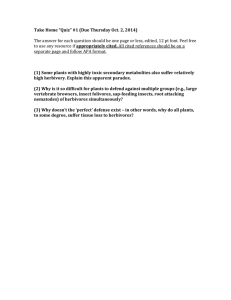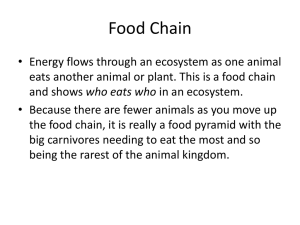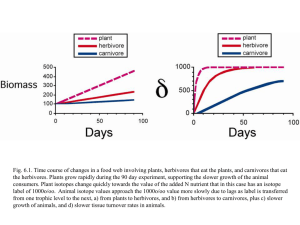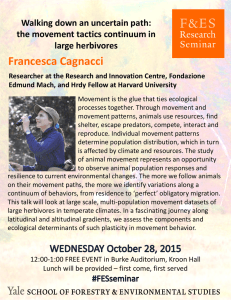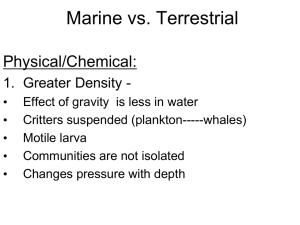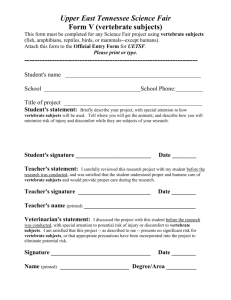DEPARTMENT OF BIOLOGY College of Arts and Sciences
advertisement
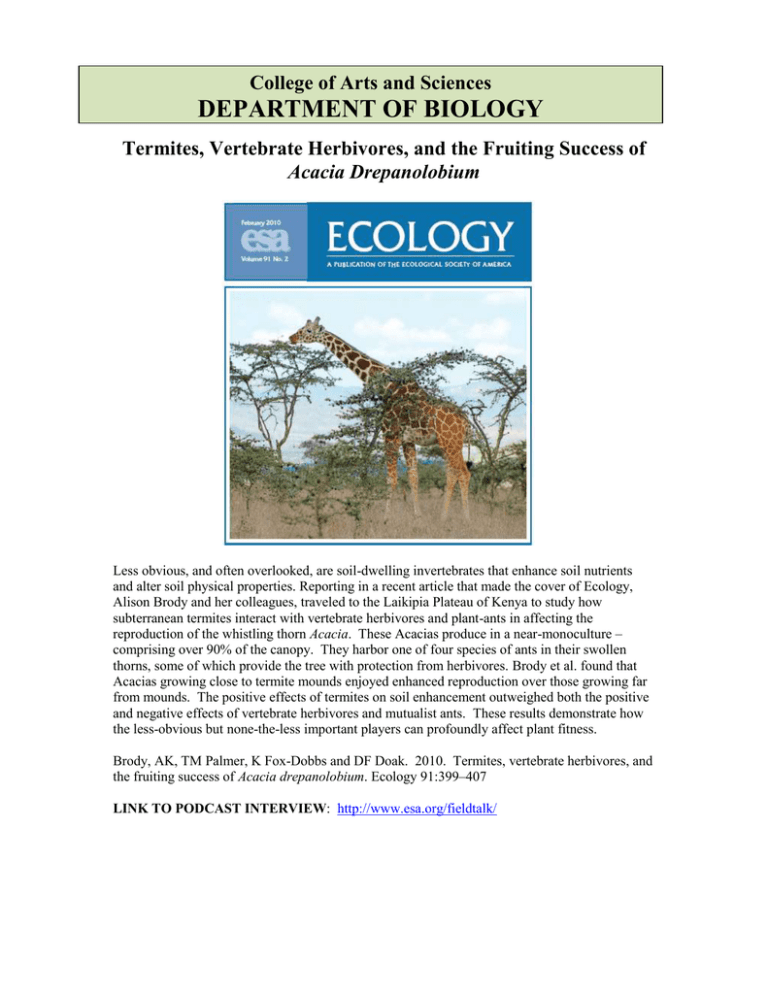
College of Arts and Sciences DEPARTMENT OF BIOLOGY Termites, Vertebrate Herbivores, and the Fruiting Success of Acacia Drepanolobium Less obvious, and often overlooked, are soil-dwelling invertebrates that enhance soil nutrients and alter soil physical properties. Reporting in a recent article that made the cover of Ecology, Alison Brody and her colleagues, traveled to the Laikipia Plateau of Kenya to study how subterranean termites interact with vertebrate herbivores and plant-ants in affecting the reproduction of the whistling thorn Acacia. These Acacias produce in a near-monoculture – comprising over 90% of the canopy. They harbor one of four species of ants in their swollen thorns, some of which provide the tree with protection from herbivores. Brody et al. found that Acacias growing close to termite mounds enjoyed enhanced reproduction over those growing far from mounds. The positive effects of termites on soil enhancement outweighed both the positive and negative effects of vertebrate herbivores and mutualist ants. These results demonstrate how the less-obvious but none-the-less important players can profoundly affect plant fitness. Brody, AK, TM Palmer, K Fox-Dobbs and DF Doak. 2010. Termites, vertebrate herbivores, and the fruiting success of Acacia drepanolobium. Ecology 91:399–407 LINK TO PODCAST INTERVIEW: http://www.esa.org/fieldtalk/
